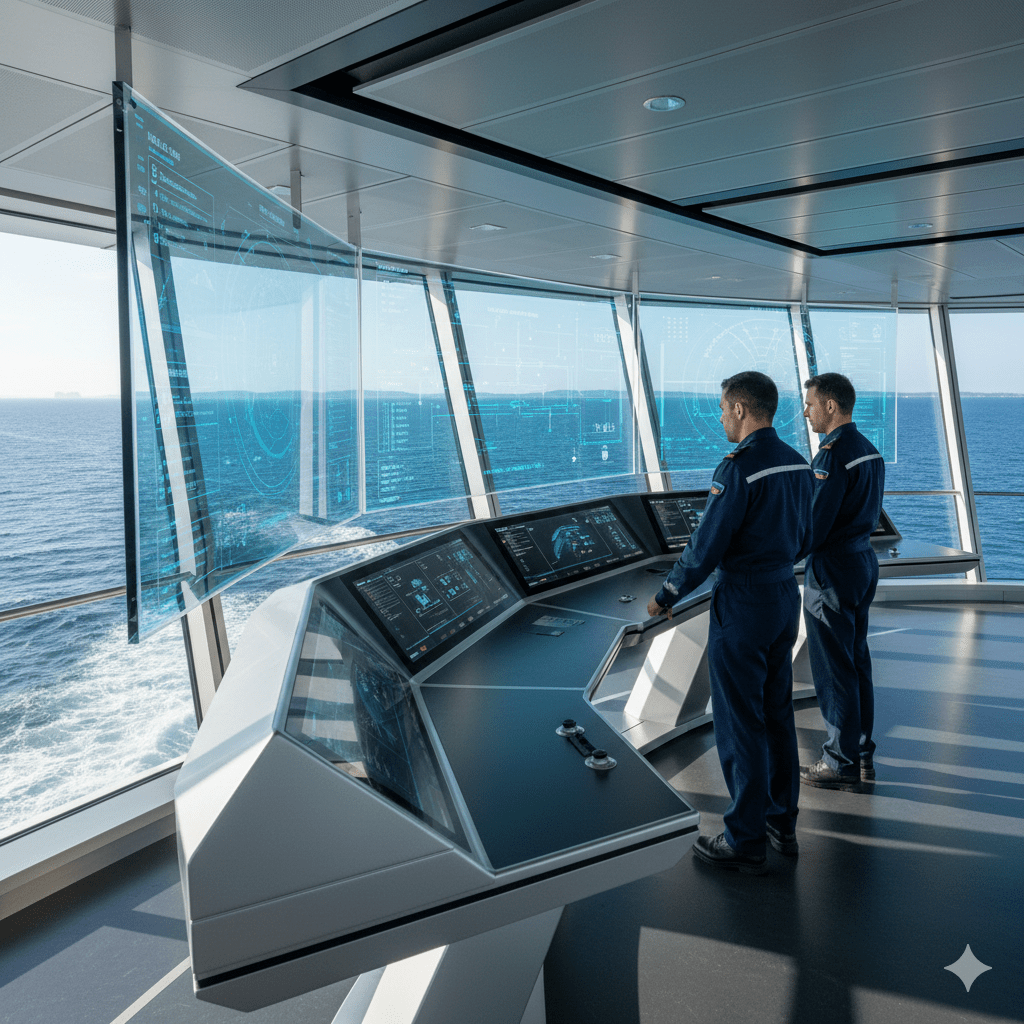Advanced training for crew members on ships subject to the International Code of Safety for Ships Using Gases or Other Low-flashpoint Fuels (IGF)
- Format: online on interactive platform
- Duration: 2 days
- Language: Ukrainian, Russian, English

The course “Advanced Training for Masters, Officers, Ratings and Other Personnel on Ships Subject to The IGF Code”
is designed for masters, deck officers, engineer officers, ratings and other personnel serving on board ships
subject to the IGF Code.
The programme has been developed in accordance with the International Convention on Standards of Training,
Certification and Watchkeeping for Seafarers (STCW) – Section A‑V/3‑2 of the STCW Code, the International Convention
for the Safety of Life at Sea 1974 (SOLAS 74) as amended, the International Code of Safety for Ships using Gases
or other Low-flashpoint Fuels (IGF Code), and the recommendations of IMO Model Course 7.14.
The course consists of five structured modules that cover fuel gas supply systems, auxiliary systems, basic gas
operations and key safety measures for working with low-flashpoint fuels. Training is delivered fully online
through video lessons, supporting materials and downloadable documents, accessible from a computer, smartphone
or tablet.
Upon successful completion of the course, participants will be able to:
- understand the physical and chemical properties of fuels used on IGF Code ships
- operate fuel systems of main and auxiliary machinery and related safety equipment
- perform and monitor key onboard operations with gas and other low-flashpoint fuels
- plan and oversee safe bunkering, stowage and securing of fuel on board
- take measures to prevent environmental pollution during fuel handling and use
- ensure compliance with international and national regulations on fuel use at sea
- identify and minimise hazards associated with fuel systems and shipboard fuel operations
- apply occupational health and fire safety measures on ships subject to the IGF Code
- understand the principles of prevention, control and fire‑fighting systems on IGF Code ships
To obtain the certificate, participants must complete all course modules and successfully pass the final test,
demonstrating the required level of competence in the safe operation of ships using gases or other low-flashpoint
fuels as fuel.
Upon successful completion of the training, participants are awarded the certificate
“Advanced Training for Masters, Officers, Ratings and Other Personnel on Ships Subject to The IGF Code”,
confirming that the course has been completed in accordance with STCW Code Section A‑V/3‑2,
SOLAS 74 (as amended) and the IGF Code.
Course Reviews
Excellent English course! Perfect pronunciation training and maritime terminology. Highly recommend for all seafarers.
Great interactive lessons. The technical English section was particularly useful for engine room communications.
Good course structure and materials. Would love to see more practice with radio communications.
Perfect for beginners! Clear explanations and plenty of practice exercises. My confidence improved significantly.
How it works:
1. Choose us
We have been in the market for over 20 years. Our courses are certified and recognized worldwide.
2. Register
Complete online registration to save time. Choose a course and after registration and payment, you will get access to training without extra steps.
3. Complete the course
Training is available from any device: PC, laptop, tablet or smartphone (iOS/Android). You can choose online format or download materials.
4. Evaluate knowledge
Assessment is conducted in the form of a test with multiple choice questions. After successful completion of testing, you will receive a certificate.
5. Get certificate
You will be provided with a link to download the certificate. The certificate can be printed at any time. If desired, the original printed copy can be ordered by mail.
How it works:
1. Choose us
We have been in the market for over 20 years. Our courses are certified and recognized worldwide.
2. Register
Complete online registration to save time. Choose a course and after registration and payment, you will get access to training without extra steps.
3. Complete the course
Training is available from any device: PC, laptop, tablet or smartphone (iOS/Android). You can choose online format or download materials.
4. Evaluate knowledge
Assessment is conducted in the form of a test with multiple choice questions. After successful completion of testing, you will receive a certificate.
5. Get certificate
You will be provided with a link to download the certificate. The certificate can be printed at any time. If desired, the original printed copy can be ordered by mail.
Frequently Asked Questions
This course is mandatory for all seafarers, officers and ratings working on board a vessel, in accordance with STCW A-VI/6, p. 1.
To enroll in the course, you need a valid medical certificate and a valid seaman's passport.
After completion, you will know different security levels, emergency procedures, and be able to recognize and avoid threats.
The course covers information about different security levels, emergency procedures, threat recognition and avoidance methods. You will learn about ship security, port facility security, and relevant international regulations.
Yes, the course is fully online and can be completed remotely. You can access the materials at any time convenient for you, from any device with internet access.
Upon successful completion of the course, you will receive an internationally recognized certificate that complies with STCW requirements. The certificate will be available for download immediately after passing the final test.
Yes, the certificate is fully compliant with the International STCW Convention 78 (as amended) and is recognized by maritime administrations of Panama, Liberia, Marshall Islands, and the USA.
Yes, you can take the course from any country as long as you have a stable internet connection. Our platform is accessible worldwide, 24/7.
The course duration is flexible and depends on your learning pace. On average, it takes 2-3 days to complete all materials and pass the final test.
The course cost is competitive and includes all materials, tests, and certification. Please contact our managers for current pricing and available discounts.
The course is available in multiple languages including English, Ukrainian, and Russian. You can choose your preferred language when enrolling.
